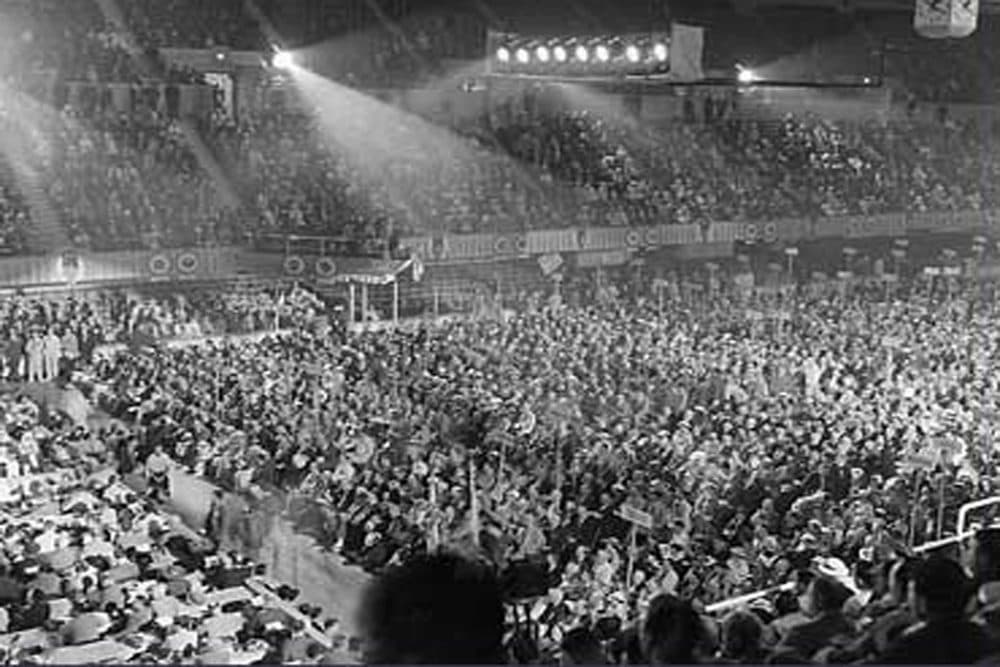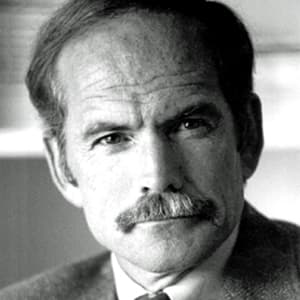Advertisement
Conventions In History: The Most Frightful Five Minutes Of FDR's Life

“[I]t was the most frightful five minutes of my life.” --Franklin D. Roosevelt speaking of an incident at Franklin Field in Philadelphia on June 27, 1936.
It had rained. At the football stadium the grass was wet. It was lucky the evening was not sweltering; for, when he delivered his acceptance speech at the 1936 Democratic National Convention in Philadelphia, President Roosevelt might have been wearing a white linen suit.
The light was fading, and at the rostrum the elderly vice-president, John Nance Garner, was struggling to read his text when the crowd of 100,000 stirred: The president’s limousine! The Philadelphia Symphony struck up “Hail to the Chief.” The spotlights “stabbed at the President; and the side curtains suddenly drew back, showing Roosevelt in a pool of brilliant light, a smile on his face, his hand raised high,” Arthur M. Schlesinger, Jr. writes.
On the arm of his oldest son, James, the president made his “stiff-legged, halting way toward the stage.” Recognizing the white-bearded Edwin Markham, whose “Man With the Hoe” was an anthem of the progressive movement, FDR waved. As the aged poet stepped forward to shake hands, he was pushed from behind, and stumbled into James Roosevelt, who lurched against his father. “The steel brace holding his right leg snapped out of position,” and the president toppled over into the grass while “the pages of his speech floated from his hand into the crowd.”
“Clean me up,” he snapped, as he was raised to his feet. “Pick up those damned sheets.” After gathering himself for a long minute, he said, “Okay, let’s go.” Consumed with rage (“I was the maddest white man you ever saw”), Franklin Roosevelt yet noticed the stricken poet, stopped, smiled, and clasped his hands. The waiting throng had not seen him fall, yet if they had witnessed this display of empathy, at a moment of “frightful” humiliation, their political champion would have become their moral hero.
Elegant in his dark suit, perfectly composed, the president went on to deliver one of his greatest speeches, attacking the “economic royalists” whose greed had plunged millions into misery in Depression America. In terms used by Sen. Bernie Sanders today, he said: ” [T]hese privileged princes reached out for control over Government itself….The political equality we once had won was meaningless in the face of economic inequality…” We face “not alone a war against want and destitution and economic demoralization,” he declared, but “a war for the survival of democracy itself.”
He ended with a clairvoyant line that lit up the coming conflict between democracy and dictatorship: “This generation of Americans has a rendezvous with destiny.” The cheering lasted ten minutes. Then, circling the stadium track in his open car, Roosevelt incited fresh frenzies with his jaunty waves. “Even after he had left the grounds, most of the crowd remained, as if in a sort of trance. Then they silently dispersed into the soft summer night.”
